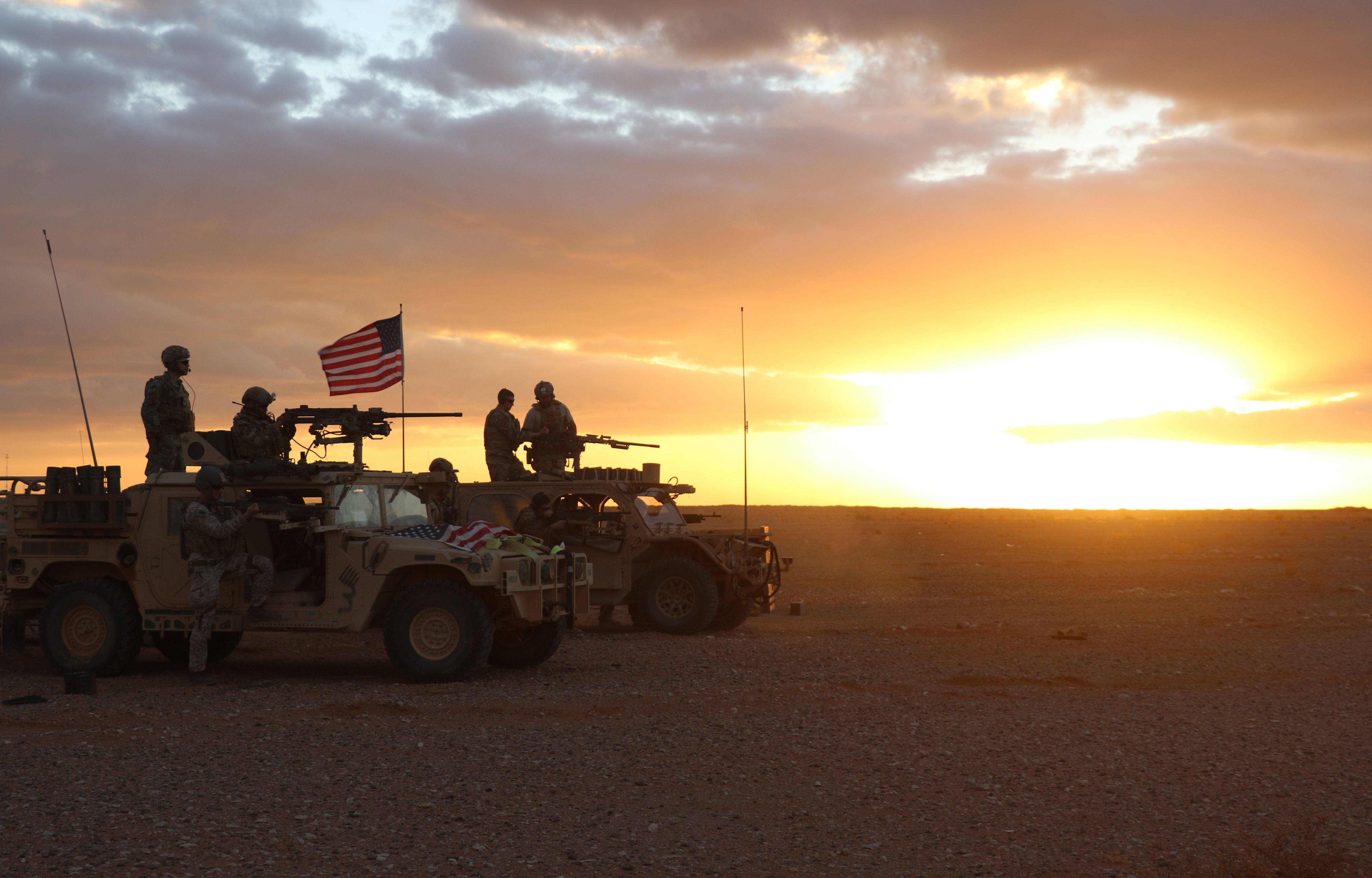The death of three Americans in Jordan due to an attack by the “Islamic Resistance in Iraq” was an avoidable tragedy. It should prompt the United States to speed up its exit from Syria and Iraq, something policy makers have been contemplating for some time. Washington must minimize its risks. To dig in and escalate would be a mistake that is likely to lead to more Americans killed. The mission that brought U.S. troops to Iraq and Syria – to destroy ISIS – has been accomplished. Residual policing of ISIS remnants can be undertaken from bases in Qatar, Kuwait and Turkey.
Hawks in Washington insist that by striking Iran directly and hard, the U.S. can bring security to its troops, the danger will subside because Iran understands force. But this analysis misunderstands the region and minimizes the dangers arrayed against U.S. troops. Iran has been committed to pushing U.S. troops out of Iraq and Syria, something its leaders articulated clearly following an earlier use of U.S. force, the assassination of Islamic Revolutionary Guard Corps Gen. Suleimani in 2020. Iran will not back down if the U.S. assassinates more of its leaders or strikes infrastructure in Iran for the simple reason that it has the upper hand in the region.
But Iran is far from being the only government that wants U.S. troops out. Turkey, Iraq and Syria are equally determined to drive the U.S. from its bases. Every single government in the region is demanding that U.S. troops leave. Turkey has escalated its war against America, not by sending missiles and drones against U.S. bases, but by sending them against America’s allies in northeast Syria and the Kurdish region of Iraq. Turkey has assassinated dozens of YPG leaders and destroyed important infrastructure. It has mobilized Syrian opposition groups under its control to attack the Syrian Democratic Forces that Washington relies on. These attacks are designed to weaken the U.S. position in the region and eventually drive it from northeast Syria.
The Syrian government is also determined to drive Americans from its soil. It accuses Washington of illegally occupying 30% of its territory and stealing its oil to subsidize the quasi-independent territory the U.S. has established in northeast Syria. As a consequence, the majority of Syrians languish in poverty and must survive with only a few hours of electricity per day, while the economy remains paralyzed by U.S. sanctions. They want the U.S. out.
The Iraqi government is also demanding that U.S. troops leave. It was provoked into doing so by Washington’s January 4 assassination of Mushtaq al-Jawari, a leader of Harakat al-Nujaba, one of the Shi’a militias that belongs to the popular mobilization forces. Washington targeted him in retribution for an earlier attack on a U.S. base. Did this show of force cow the Harakat al-Nujaba or the popular mobilization forces? No. On the contrary, it led to an escalating drumbeat of missile and drone attacks on American bases.
But the militias were not the only forces to go on the offensive, the Iraqi government did as well. Because the popular mobilization forces are officially under Baghdad’s control, the U.S. found itself effectively at war with the central government. Prime Minister Sudani cannot ignore them. To save his government, Sudani had to ask U.S. forces to leave. Both he and Iraq’s president, as well as almost every Iraqi politician, insist that Iraq not be turned into a proxy battleground.
Striking Iran will not solve America’s problems in the region. Biden’s support for Israel’s war against the Palestinians has inflamed anti-American and anti-Western feelings across the entire Arab world. It has breathed new life into the resistance front. Only yesterday, most Arabs scoffed at it for being impotent and doing nothing to deter Israel’s mistreatment of the Palestinians. Because of Gaza, Arabs are once again rooting for resistance.
Lastly, the forces allied with Iran that stretch from Lebanon to Iraq are not foreign to the region. They cannot be rolled back by U.S. power and retaliatory strikes. There are more Shiite Arabs in Lebanon, Syria and Iraq combined than there are Sunni Arabs. The power of the Shiite militias today may seem like an aberration or some Iranian feat of levitation, but it is not. Centuries of discrimination against Shiites meant that they were the dispossessed and a political minority in a region where they were in fact the demographic majority. It is for good reason that the area stretching from Beirut to Busra is today called the Shiite Crescent.
The notion that several thousand American soldiers can be kept safe while hunkered down in desert bases sprinkled across the great expanse of this region is a mirage. No one wants them there, not the governments and not the people. All are sharpening their knives and devising new ways to weaken them and force them to leave. It is pointless for Washington to keep them there for a mission that has long since passed its expiration date or to escalate a war it cannot win.
- US troops in Iraq & Syria with unclear mission attacked again ›
- UPDATE: US troops in Iraq, Syria fending off spate of armed attacks ›
- US troops in Iraq and Syria aren't 'keeping the peace' ›
- Bring US troops home from Iraq and Syria now ›
- Is the US-led counter ISIS campaign 'mission accomplished'? | Responsible Statecraft ›
- How to protect US interests in Iraq with no troops | Responsible Statecraft ›
- Tom Friedman’s strange case for a US military presence in Syria | Responsible Statecraft ›
- Sunni, Shia split means US troops might be in Iraq indefinitely | Responsible Statecraft ›
- Did mission creep kill 3 Americans in Syria? | Responsible Statecraft ›
















